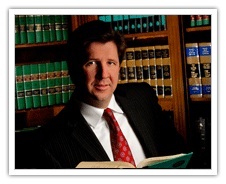An Arizona man executed Wednesday was denied access to information about drugs used during his execution. The man’s lawyers fought unsuccessfully to obtain information about the drugs and whether those conducting the execution had any experience using them.
 The man—Joseph Rudolph Wood, III—was sedated at 1:57 p.m. after a stay of his execution entered by the 9th Circuit Court of Appeals was lifted by the U.S. Supreme Court. The stay had been entered to allow Wood’s lawyers additional time to explore the efficacy of drugs to be used in the execution. States like Arizona have shrouded the identity of drugs and their makers in secrecy after the United Kingdom and European Union imposed restrictions in 2010 and 2011 on the export of anesthetics used in executions.
The man—Joseph Rudolph Wood, III—was sedated at 1:57 p.m. after a stay of his execution entered by the 9th Circuit Court of Appeals was lifted by the U.S. Supreme Court. The stay had been entered to allow Wood’s lawyers additional time to explore the efficacy of drugs to be used in the execution. States like Arizona have shrouded the identity of drugs and their makers in secrecy after the United Kingdom and European Union imposed restrictions in 2010 and 2011 on the export of anesthetics used in executions.
The ban on exports led to a shortfall of pentobarbital and sodium thiopental—two drugs traditionally used in lethal injections—leading states conducting executions to seek out substitutes. One state—Oklahoma—used a new drug combination during the April 29 execution of 38-year-old Clayton Lockett. Lockett was declared unconscious ten minutes into his execution, but three minutes later he began breathing heavily, writhing, clenching his teeth and straining to lift his head off a pillow. That prompted prison officials to lower the blinds to prevent those in the viewing gallery from seeing what was happening. Lockett eventually died of a heart attack.
In the Arizona case, after being sedated, Wood continued breathing and began gasping and snorting, according to his lawyers. An emergency hearing was convened, and the Arizona State Supreme Court was actually hearing from Wood’s lawyers when Wood was declared dead—some two hours after the execution began. A spokesperson for the Arizona attorney general’s office who also witnessed the execution said Wood was only snoring. “It was quite peaceful,” the spokesperson said. “He just laid there.”
The brother-in-law of one of the victims of Wood’s 1989 double-murder questioned why executioners didn’t just shoot Wood, or give him “Drano.” Chief Judge Alex Kozinski of the 9th Circuit Court of Appeals suggested that lethal injections should be replaced with something more efficient, like firing squads.
Many opponents of capital punishment premise their opposition on moral or religious grounds. The legal case for banning capital punishment is trickier. Currently, 34 states authorize the death penalty, though several of these—including North Carolina—have not carried out an execution in years. The Eighth Amendment to the U.S. Constitution forbids “cruel and unusual punishments,” but the high court has never held that inflicting death as a punishment is in and of itself cruel and unusual.
The question in the Wood and Lockett cases is whether what happened to them during the process of putting them to death was cruel and unusual. Wood’s lawyers argued that, at the very least, those sentenced to die are entitled to information regarding the safety and reliability of the method of execution. One 9th Circuit Court of Appeals judge viewed that request, however, as just another tool in a broader effort by death penalty opponents to ban the practice altogether.
If you need assistance with a criminal matter, please do not hesitate to contact me to set up an appointment today. Arnold & Smith, PLLC is a Charlotte based criminal defense, traffic violation defense and civil litigation law firm servicing Charlotte and the surrounding area. If you or someone you know need legal assistance, please contact Arnold & Smith, PLLC today at (704) 370-2828 or find additional resources here.
About the Author
 Brad Smith is a Managing Member of Arnold & Smith, PLLC, where he focuses on the areas of criminal defense, DUI / DWI defense and traffic defense.
Brad Smith is a Managing Member of Arnold & Smith, PLLC, where he focuses on the areas of criminal defense, DUI / DWI defense and traffic defense.
Mr. Smith was born and raised in Charlotte. He began his legal career as an Assistant District Attorney before entering private practice in 2006.
In his free time, Mr. Smith enjoys traveling, boating, golf, hiking and spending time with his wife and three children.
Sources:
http://www.latimes.com/nation/nationnow/la-na-nn-arizona-execution-20140723-story.html
http://www.foxnews.com/us/2014/04/30/okla-inmate-dies-heart-attack-after-botched-execution/
http://www.nytimes.com/2014/07/21/us/court-delays-execution-over-secrecy-with-drugs.html
http://www.theguardian.com/world/2014/jul/20/arizona-reveal-death-penalty-drugs-execution
http://www.theguardian.com/world/2011/dec/20/death-penalty-drugs-european-commission
Image Credit:
http://upload.wikimedia.org/wikipedia/commons/2/2f/SQ_Lethal_Injection_Room.jpg
See Our Related Video from our YouTube channel:
https://www.youtube.com/user/ArnoldSmithPLLC/videos
See Our Related Blog Posts:
Supreme Court to decide issue of cruel and unusual punishment for teens
Convicted Charlotte Cop-Killer’s Appeal Denied
 Charlotte Criminal Lawyer Blog
Charlotte Criminal Lawyer Blog

